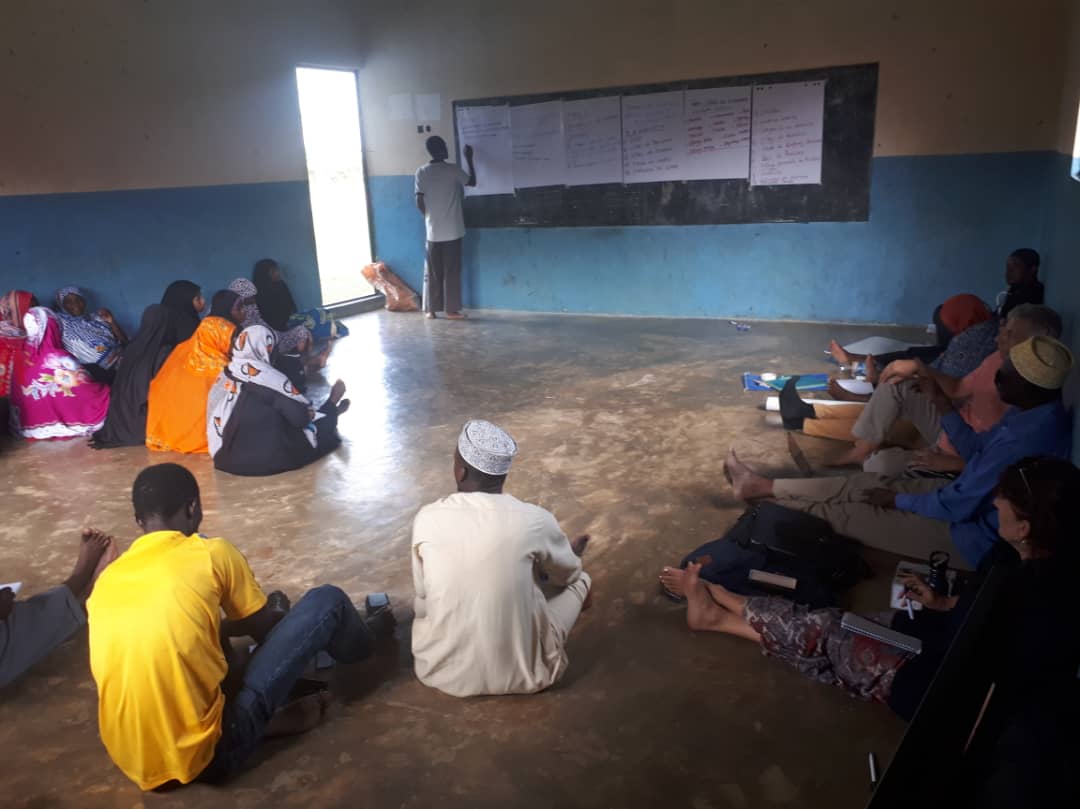

MKUBA signifie Mfuko wa Kutunza Bahari: "Fonds pour la protection de la mer" en kiswahili. Il s'agit d'un type de système d'éco-crédit communautaire.
L'écocrédit communautaire est défini comme suit : "un crédit, géré au niveau de la communauté, conditionné par des actions écologiques entreprises par l'emprunteur membre de la communauté et exigées par les conditions du prêt". (Wild, et al, 2020) - enverra ref s'il y a de la place pour cela.
Dans notre projet pilote MKUBA, cinq groupes, constitués en fonction de la principale activité de subsistance de leurs membres, ont été initialement établis en 2018 ; ils étaient composés de pêcheurs à pied, de pêcheurs au filet, de cultivateurs d'algues, d'utilisateurs de la mangrove, et le dernier groupe était composé de membres des WFC.
Les membres du groupe d'écocrédit ont suivi une série de formations pour permettre au groupe de fonctionner et de suivre les règles auxquelles ils doivent se conformer pour recevoir le financement en capital de l'organisation de soutien. Les formations ont porté sur les principaux sujets suivants : Formation au leadership, tenue de registres, protection de la caisse, règlements de chaque groupe, amendes, renforcement des capacités en affaires (bref), gestion de la conservation et procédures d'établissement de rapports.
-
Un plan de gestion ou des règlements locaux clairs et relativement respectés (ou qui ne font pas l'objet de conflits aigus), qu'il est donc assez facile de traduire en conditions de conformité pour l'accès aux prêts par les membres des groupes d'écocrédit.
-
Une expérience locale préalable, au sein de l'organisation ou des organisations d'appui et/ou des communautés bénéficiaires, en matière de gestion formelle ou informelle de crédits communautaires, de cycles de prêts et de fonds renouvelables.
-
Une confiance mutuelle généralement bonne entre les membres des groupes à établir.
- Les éventuels abandons des groupes d'écocrédit doivent faire l'objet d'un suivi régulier et attentif.
-
Si les abandons signalent un problème courant, il convient d'enquêter et de le traiter rapidement, en particulier pour éviter qu'il ne se propage et ne mette en danger l'ensemble du programme.
-
Devoir de diligence : il est important que le projet applique un devoir de diligence lorsqu'il encourage les individus à entreprendre, et qu'il évite d'encourager les personnes inexpérimentées à se lancer dans des activités risquées.